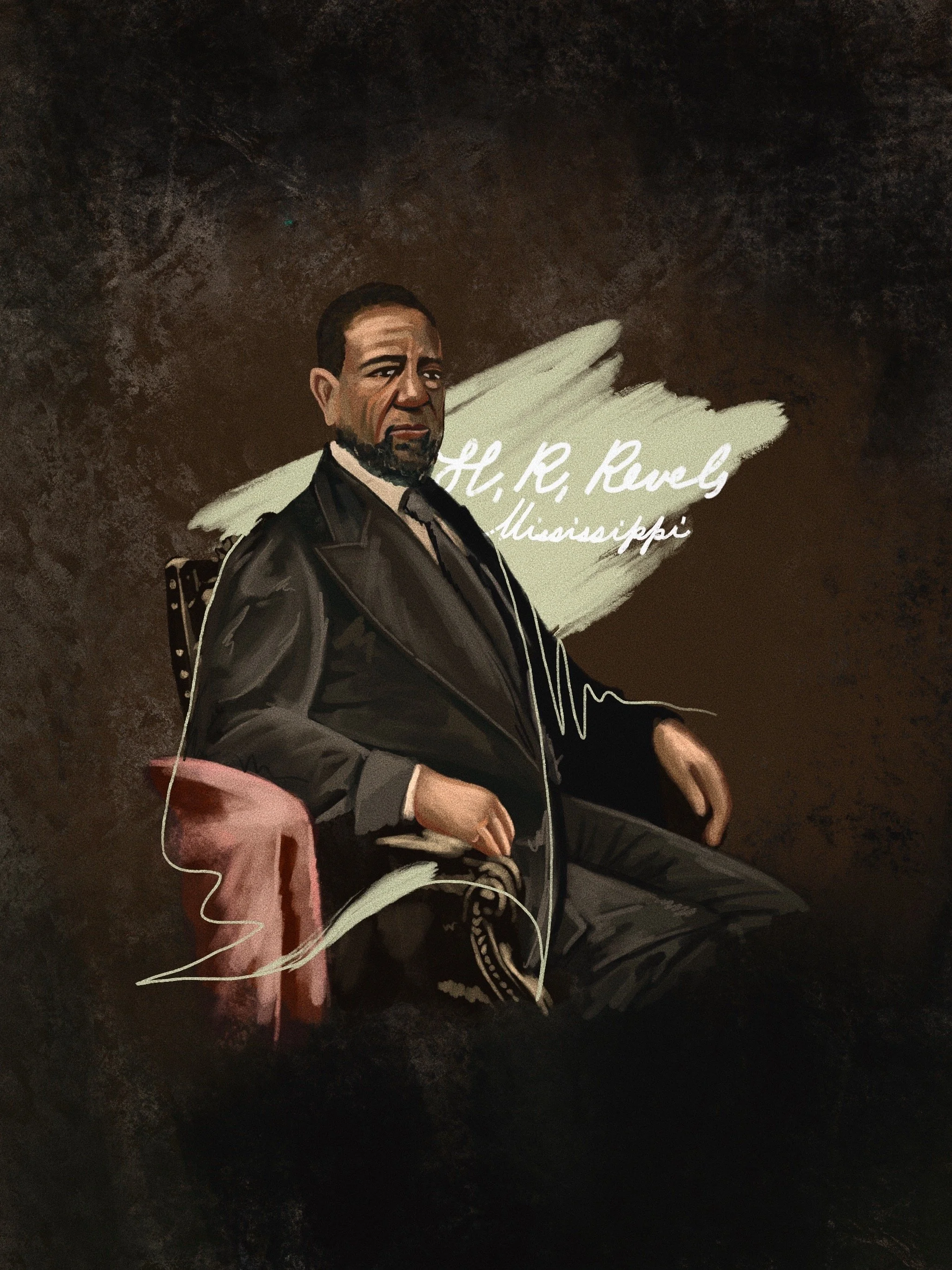One common thing with Black History Month is a failure to connect the dots from past to present, mistaking moments of progress for some kind of finish line and missing out on the fact that Black history is still being written every day, and our choices will reveal how we fit into that story.
I like the story of Hiram Revels. You don’t see his story profiled for Black History very often, although his legacy would merit that. And his legacy also confronts these two common mistakes.
Revels was the first Black senator in the United States, representing none other than Mississippi. In fact, he filled the senate seat vacated by Jefferson Davis. He was also a minister and absolutely brilliant and bold in making moves towards progress.
Despite taking office just three weeks after the 15th Amendment was ratified, prohibiting racial discrimination against voting, taking office was complicated. A bloc of senators were determined to keep Congress all white. Because Mississippi seceded before the Civil War, they prolonged its readmission into the union. Their efforts ultimately failed and in the meantime Revels used his power to appoint Black leaders across Mississippi and in the federal government.
The idea of Black Senator from Mississippi would seem pretty progressive by today’s standards, which is why it’s also important to remember that it happened before. In the 1870s, more than a dozen Congress members were Black.
What happened? An alliance between Southern Democrats and Republican president Rutherford Hayes withdrew the federal troops from the South who protected Black voters. By the 1900s, Jim Crow laws were enacted and enforced by groups like the KKK. Even after the Civil Rights Movement in the 1960s, the duty of obstruction was handed off to mass incarceration and a divestment of Black communities.
When you think of Black History as a finished work, it makes it harder to see the contrast between federal troops protecting Black voters and senators refusing to prevent laws designed to create hostile voting environments in Black communities in Georgia, Tennessee, or Texas.
Celebrate Black History, and pay attention to the parts still being written.


